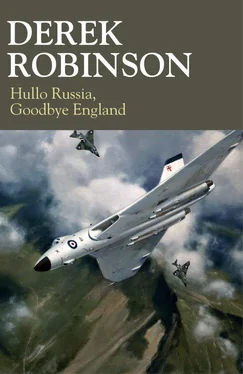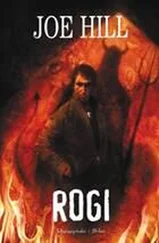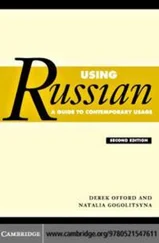Now Silk had nowhere to go, nothing to do, nobody to do it with. He drove back to the airfield, too fast. For once, speed did not dissolve anger. His life seemed to be one battle after another: with Tucker over the bookie, with Stevens over who’s boss, with Freddy over… he wasn’t sure what. And in one quick day he’d lost his girlfriend or mistress or something, and then his bloody wife wouldn’t even let him fight about it. What was wrong with Zoë?
He went into the mess. Hardly anyone there, and the only face he knew was the adjutant, who took his pipe out of his mouth and said. “You look like a pig in an abattoir, old boy.” He put his pipe back and got on with the crossword. Silk walked out and got in his car and drove back to The Grange. Stevens opened the front door.
“Wing Commander Skelton telephoned,” he said. “You should watch the BBC news.”
They both watched it. President Kennedy told the American people that Soviet SS-4 Medium Range Ballistic Missiles had been secretly installed in Cuba, that Washington DC and other cities were within their range, and that a naval blockade of the island would begin in 48 hours.
“What the hell’s going on?” Silk asked.
“I couldn’t possibly say, sir,” Stevens said.
1
The Cuban Missile Crisis was a bombshell with a very long fuse behind it.
The gangster, racketeer and dictator Fulgencio Batista fled Cuba in December 1958. Castro and Ché Guevara led their revolutionary forces into Havana and formed a new government. Washington quickly recognised it, and 1959 passed off fairly smoothly. Castro reduced rents, took over the US-owned Telephone Company, redistributed land. He wasn’t a Communist, he was a reformist. He made some angry anti-American speeches, but the US still bought a lot of Cuban sugar. President Eisenhower said he was ‘perplexed’ by Castro’s statements and he reaffirmed the commitment of the US to ‘the policy of non-intervention in the domestic affairs of other countries, including Cuba’. Officially, Washington had no big difficulties with Castro – except on one point: it blocked arms sales to Cuba.
Well, the island must be able to defend itself. Castro said he would buy wherever he could. That had to mean the USSR or its allies. Now the fuse began to burn.
For all Eisenhower’s public declarations, his administration had already begun to think that Castro must go. On the island, hundreds of Batista’s men had been tried for atrocities, and many were executed. Large numbers of Batistianos fled to Miami, where they plotted to reverse the revolution. In March 1960 Eisenhower ordered the CIA to train Cuban exiles ‘against a possible future day when they might return to their homeland’: the first hint of military force. Eventually, four training bases were set up in Florida, plus others in Puerto Rico, Panama, Nicaragua and Guatemala. The CIA was working on plans to assassinate Castro. And Washington was thinking blockade.
Cuba had to import oil. Soon, under pressure from Washington, the big US oil companies cut their supplies. Inevitably, Castro turned to Russia. Texaco, Esso and Shell operated refineries in Cuba but they refused to process Russian oil. In June 1960 Castro nationalised them. A week later, Eisenhower cancelled the Cuban sugar quota. Russia stepped in, agreed to buy Cuban sugar for five years and to provide $100 million in credit. By the summer, arms were reaching Cuba from the Eastern Bloc and Castro was nationalising US-owned businesses – 26 in August, all American banks in September, a further 166 US firms in October. Washington banned almost all trade with Cuba. That left Castro with no friend but Russia. Early in 1961 he declared himself (and Cuba) for socialism.
As if to test Castro’s wisdom, the new President, Jack Kennedy, approved an invasion of Cuba. In April 1961, the CIA sent 1,400 armed exiles to land on the Bay of Pigs, provoke a rising and overthrow Castro. The Cuban army was waiting. The raid was worse than a disaster; it was a farce. Perhaps it persuaded Kruschev that Kennedy lacked backbone.
In 1962, Cuba was always in the headlines. Kennedy’s presidential campaign had claimed that the US suffered from a missile gap. There was no such gap, but Kennedy had created the scare and now he was stuck with it. There were more and more reports of a Soviet military build-up in Cuba, and they were true.
America had installed nuclear missiles in Turkey, aimed at the Soviet Union. Kruschev was furious. He wanted leverage to get the missiles out. The summer and autumn of 1962 saw a stream of Russian ships to Cuba. Just to transport the troops took 85 merchant ships. Missiles came downriver by barge to the Black Sea and were loaded onto freighters. On reaching Cuba, they were unloaded by night; but missiles were conspicuous, and they were no secret to many Cubans. One mystery is why American intelligence took so long to discover the truth. Another mystery is how Kruschev hoped to construct missile launch sites in Cuba without being detected. Marshal Biryuzov, of the Strategic Rocket Forces, told the Soviet Presidium that the missiles could be installed secretly. To US reconnaissance aircraft, he said, “they would look like palm trees.” Kruschev agreed.
The build-up was big and getting bigger: 42,000 Russians on Cuba by mid-October was a lot of Russians. Already, Kennedy had issued warnings, had put 150,000 reserve troops on active duty, had sent more aircraft to spy on Cuba. At last, on 14 October he was shown aerial photographs of construction work that looked like launch sites for medium range ballistic missiles. More missiles were on ships crossing the Atlantic.
The Joint Chiefs of Staff urged Kennedy to order an immediate air strike on all military targets in Cuba. General Curtis LeMay, the Air Force Chief of Staff, saw the Cuban crisis as an excuse to launch a full pre-emptive nuclear assault on Russia. He believed that the SAC could obliterate the Soviet Union. How much of the US would be obliterated by the Soviet Union in return, General LeMay did not say.
The fuse had been hissing and sputtering and crackling for a long time. Now, in October 1962, there wasn’t much of it left and it was burning fast. World War Three was a serious likelihood. To some, an attractive possibility. Wait any longer and the chance might be missed.
2
Everyone in 409 Squadron assumed that Skull knew the inside story about Cuba. He got tired of telling them to listen to the BBC, and he phoned Brigadier Leppard and suggested lunch. “On me,” he added.
“Bomber Command is so desperate for news? This Cuba thing’s nothing, just a misunderstanding, that’s what I’ve been told to say, although I can’t see what’s to misunderstand about sixty-three feet of ballistic missile aimed at the White House. But sure, I’ll let you pay. Tell the truth, I’ll be glad to get off the base. Everyone’s hepped up, afraid they might miss the war.”
“There won’t be a war, Karl. There might be a nuclear spasm.”
“Good, I’ll tell them that. They’ll ask me to spell it.”
They got the last booth in the Bum Steer. “What happened to you?” Leppard asked. “Fall out of the wrong bed?”
“I was punched by a pilot, in a simulator. It was a point of honour.” No it wasn’t, it was a point of panic . “Trivial incident.” Unforgettable terror .
They ordered drinks and steaks. “Okay, here’s all I know,” Leppard said. “Cuba’s been a rumbling volcano all summer. Late August we knew they had Russian surface-to-air missiles, purely defensive, no big deal. Now it turns out they’ve also got a bunch of medium-range ballistic firecrackers, and they’re making launch sites for even bigger bangs, plus they’ve got MiG-21s and Ilyushin-28s, and heavy helicopters, and coastal defence stuff like gunboats with their own missiles. I may have missed five or ten thousand Russian infantry, they’re hard to see in the sugarcanes.”
Читать дальше












